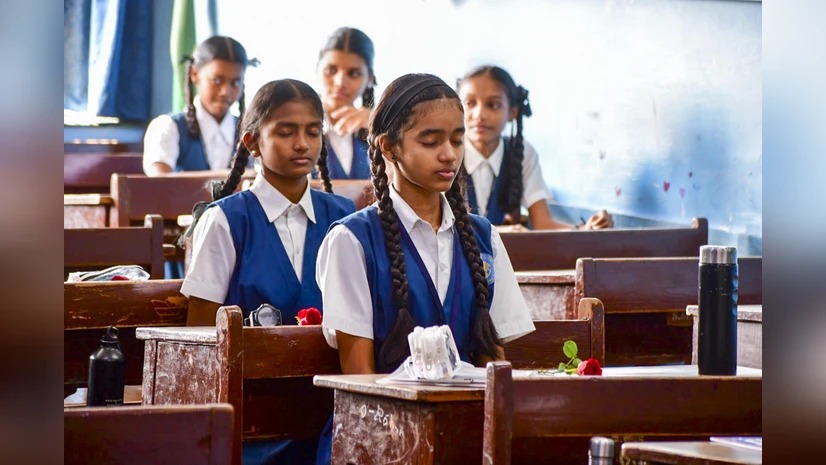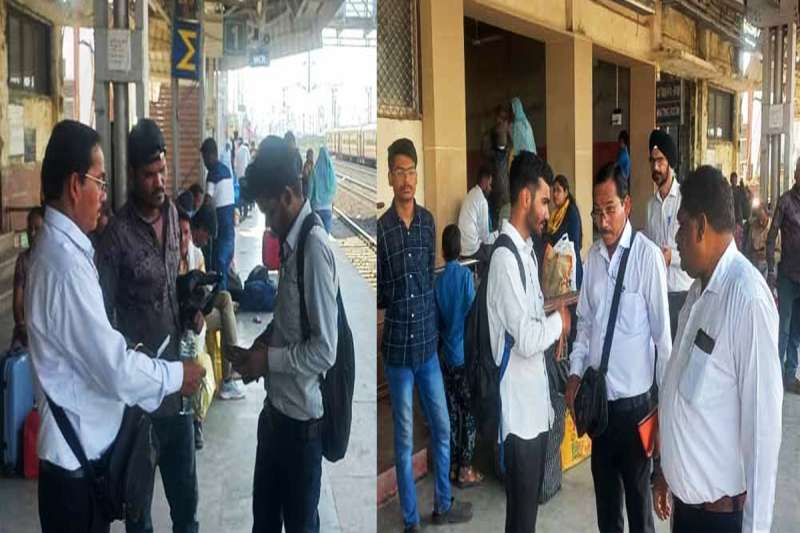@JUDGMENTTAG-ORDER
1. Heard the learned Counsel for the petitioner and the learned Standing Counsel for the respondent-Bank.
2. The petitioner was initially appointed in the subordinate cadre of the respondent-Bank on 8-12-1960 and later on promoted as Clerk in the year 1971. The dispute in the instant writ petition relates to his promotion to the next higher cadre post of Junior Management Grade-I Scale. The procedure adopted by the respondent Bank for promotion of clerks to Junior Management Grade Scale-I "under State Service" is by a written test from amongst the eligible clerical staff as per the seniority list prepared, depending upon the number of vacancies. There is no dispute whatsoever that the petitioner is eligible for promotion to the said post. All the eligible candidates who will be called for written test will be offered coaching for three weeks in the Bank''s Training Centre and all of them will be supplied with a booklet containing 100 questions. The question paper will be of ten questions, each having an alternative set from the booklet of hundred questions and answers referred to above. According to the procedure a general candidate who secures 40% and above marks in the written test will be declared as successful and promoted to the Junior Management Grade Scale-I. A panel of successful candidates will be prepared and orders will be issued as and when vacancies arise.
3. In the instant writ petition, there is no dispute whatsoever that the petitioner become eligible to appear for the written test and accordingly, he appeared for the written test conducted by the respondent-Bank on 26-8-1991 at the Zonal Staff Training Centre, Hyderabad. However, the examination was postponed to 16-9-1991 and on that day the petitioner appeared for the examination. The petitioner claims that he had attempted nine questions, out of ten questions. The details of the questions attempted by him are also stated in the affidavit filed in support of the writ petition.
4. The petitioner claims that he answered all the questions satisfactorily and as per the answers given in the booklets supplied to the candidates. The petitioner also claims that he has fared well in the examination and expected to get fifty marks. There is also no dispute whatsoever that the petitioner happens to be the senior most among the seventeen candidates appeared for the examination. However, there were only fourteen vacancies. The respondent-Bank published the result of the examination through office Circular dated 18-9-1991, wherein the petitioner''s name was hot found. It is stated that the petitioner was only the unsuccessful candidate, as all other sixteen candidates were declared successful in the written test. The petitioner apprehends that the respondent herein had intentionally eliminated him from the list of successful candidates. This situation was so created by the respondent to intentionally eliminate him from consideration of his case for promotion by prevailing over the officers who evaluated the answer sheets. The petitioner suspects that his answer scripts were so evaluated by awarding lesser marks even for correct answers given by him. It is also asserted that some candidates who are not well conversant with the bank practice and who were less intelligent than the petitioner who have been declared successful in the examination, while he was alone declared unsuccessful.
5. It is under those circumstances, the petitioner prays for issuance an appropriate writ to call for the answer scripts of the petitioner and declare the action of the respondent in denying promotion to him to the officer cadre as illegal. The petitioner also prays for declaring the action of the respondent herein in awarding less number of marks in the written test held on 16-9-1991 as mala fide one.
6. It is evident from the record that there were fourteen identified vacancies and as per the promotion policy in vogue at the relevant time, eighteen candidates, including the petitioner were called for the written test on 16-9-1991. The question paper, itself, was set by a Committee consisting of three senior executives of the Bank and that too just before the commencement of the test. The members of the Committee are:
(a) Sri T.G. Shapoorjee,
Chief Manager (Personnel)
(b) Sri N.S. Ramanan,
Chief Manager (Planning & Development)
(c) SriK.K. Viswanatham,
Chief Manager (Chief Internal Auditor)
7. It is also evident from the record and as revealed in the counter affidavit, that all the three members of the Committee sat together on the same day for evaluating the answer scripts and marks were awarded. The petitioner got (26) marks out of (100) and as such he was the alone unsuccessful candidate. There is no dispute whatsoever that the Committee constituted for the purpose of framing the question paper and evaluating the answer scripts consisted of senior executives of the bank, who are not under the direct or indirect control of the respondent-Zonal Manager in any manner. They are senior executives.
8. Learned Counsel for the petitioner, Sri Vedula Srinivas, contends that the petitioner reasonably believes that he secured, at least, forty marks out of one hundred, as the questions that were required to be answered were very simple. It is further submitted that it was not at all difficult for the petitioner to answer such simple questions out of his rich experience. It is urged that the petitioner could have been declared successful in the written test and consequently promoted, but for the mala fides on the part of the respondent.
9. Sri C. V. Rajeeva Reddy, learned Standing Counsel appearing for the respondent-Bank submits that mere estimation by the petitioner about himself is not a ground to infer any mala fides on the part of the respondent-Bank. The whole process of conducting test and evaluation is absolutely transparent and cannot be stated to be vitiated for any reason whatsoever. Learned Counsel also contends that the averments made in the affidavit are totally vague, indefinite and insufficient to record any finding of bias or mala fides.
10. I have given my anxious consideration to the rival submissions made by the learned Counsel.
11. It is evident from the record that the written test was conducted not by the appointing authority; but by a Committee constituted for the said purpose. The question paper, itself, was set by the Committee consisting senior executives and they, themselves, evaluated the answer scripts. The petitioner got only twenty six marks, out of one hundred. This Court in exercise of its judicial review jurisdiction cannot sit in appeal over the decision taken by the authorities and make roving inquiry to find out as to whether the answer scripts of the petitioner were properly evaluated by the Committee. At any rate there is no such foundation or an averment made in the affidavit filed in support of the writ petition. The petitioner may presume himself, that he fared very well in the examination. That, itself, would not be a ground to requisition the answer scripts and inspect the same by this Court. There must be some valid reason for summoning the answer scripts. True, as contended by the learned Counsel for the petitioner, this Court has jurisdiction, in appropriate cases, even to summon the answer scripts, provided prima facie case is made out for ordering such inspection. The Court cannot is usual course requisition the answer scripts by mere asking. The Court would be opening a Pandora Box, if such requisitions are conceded to. At any rate, appointed out by the learned Counsel for the respondent Bank, there is no provision for re-evaluating or recounting of the marks awarded by the Committee.
12. Neither the Members of the selection Committee nor the effected persons are impleaded as respondents in this writ petition. It is true, the Members of the selection Committee are the Committee constituted to evaluate the examinations need not be impleaded in every case whenever the examination is assailed. But, in my considered opinion, the Members of the Committee are required to be impleaded in person in a case where mala fides or bias is attributed. In this case, the petitioner has gone to the extent of saying that the Committee Members were acting under the dictation of the respondent-Zonal Manager. Such allegation are denied, in the counter-affidavit, by the Zonal Manager. But how can the Court come to any conclusion, in the absence of the Members of the Committee, as to whether they have acted under any such dictation. Any word from this Court against the Members of that Committee would amount to condemning them without giving any reasonable opportunity to explain what is stated by the petitioner in the affidavit. Such a course is not permissible to the petitioner.
13. In the instant writ petition, the petitioner also seeks consequential direction, directing the respondent to promote him as an Officer in Junior Management Grade Scale-I. There were fourteen vacancies and fourteen candidates have already been appointed. If the petitioner is to be given any relief, one of the selected candidates have to necessarily be replaced. Viewed from that angle, I hold that the petitioner ought to have impleaded the effected parties, as parties to the writ petition.
14. Be that as it may, even on merits the petitioner could not make out any case whatsoever. His assertion that he had fared well in the examination, itself, is no ground. This Court does not exercise any appellate jurisdiction for judicially evaluating the process of selection. The contents of the affidavit filed in support of the writ petition are vague and indefinite and it is not possible for this Court to infer any bias or mala fides on the part of the respondent. Therefore, it is not possible to agree with the plea put-forth by the petitioner that he was deprived of his promotion on account of the mala fide action on the part of the respondent. The pleadings in this regard may be put in the words of the petitioner, himself, as stated in the affidavit - "It is submitted that I strongly apprehend that proper marks are not given to the answers given by me in the Examination and it was done with a mala fide intention of depriving me of the promotion....... The action of the respondent is mala fide, arbitrary and violative of Articles 14 and 16 of the Constitution of India...... I apprehend that with a mala fide intention of depriving me of the promotion the respondent has prevailed over the evaluation Committee and consequently I was awarded lesser marks for all the answer given by the though they deserve higher marks." These allegations are totally vague and indefinite and it is not possible for this Court to record any finding whatsoever based on such indefinite allegations. Making the allegations of bias and mala fides is every easy, but difficult to establish. The Court cannot act upon the mere averments made in the affidavit filed by an interested person. There must be something more on record to record any finding of bias or mala fides.
15. For all the aforesaid reasons, I do not find any merit in this writ petition. The same shall accordingly stand dismissed. There shall be no order as to costs.

